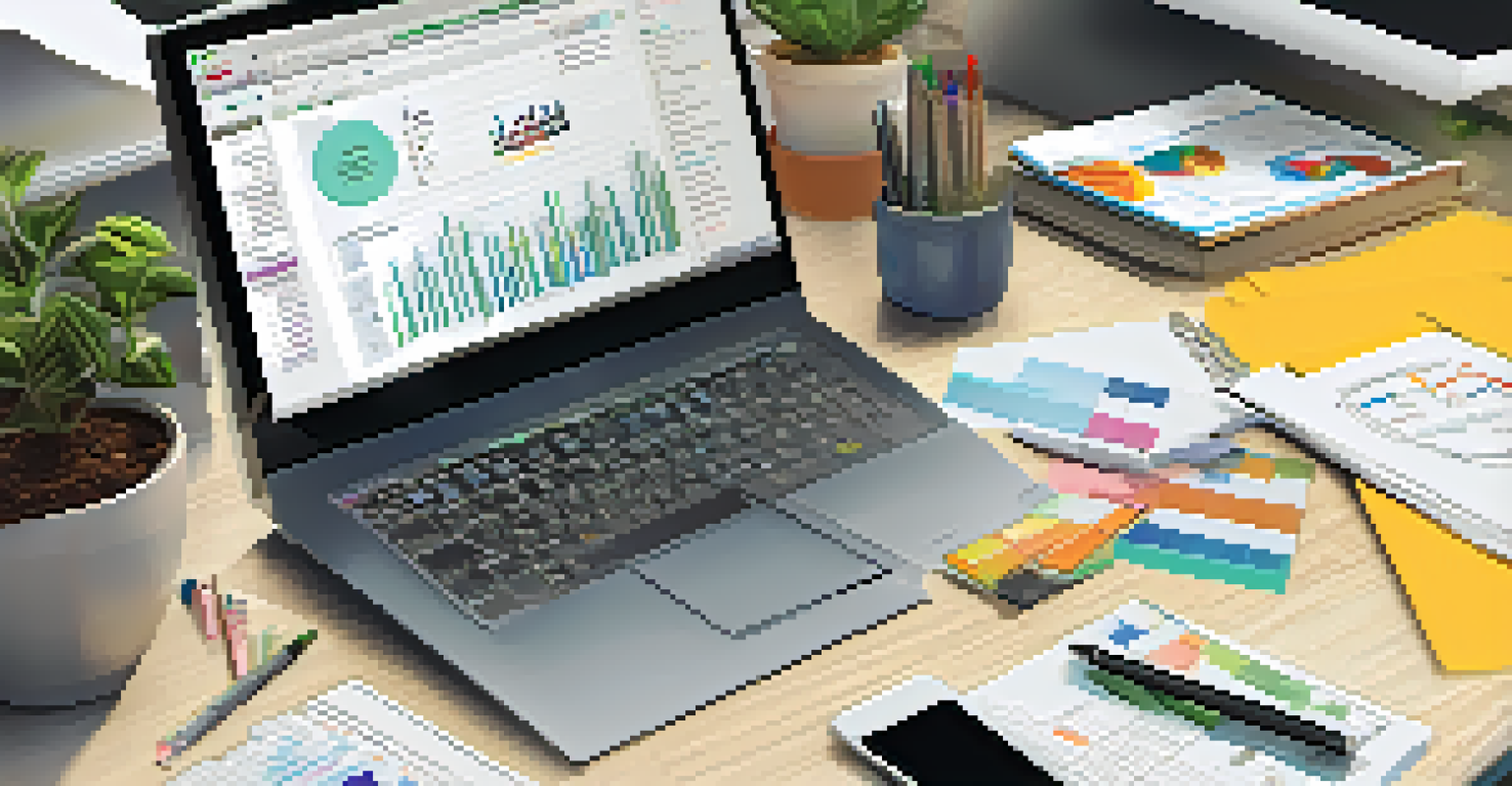Emergency Funds: A Safety Net for Financial Peace

Understanding Emergency Funds and Their Importance
An emergency fund is a dedicated savings account set aside for unexpected expenses, like medical bills or car repairs. Having this financial cushion is crucial because it prevents you from derailing your budget when life throws a curveball. Imagine your car breaks down suddenly; without an emergency fund, you might be forced to use credit cards, leading to debt.
An investment in knowledge pays the best interest.
These funds act as a financial safety net, ensuring that you can handle unforeseen situations without panic. Beyond just the immediate relief they provide, emergency funds also contribute to your overall financial health. They allow you to face emergencies with confidence, knowing that you have a backup plan.
Ultimately, an emergency fund can mean the difference between financial stability and chaos. It brings peace of mind, knowing you won’t have to scramble for cash or sacrifice your long-term goals when unexpected situations arise.
How Much Should You Save in Your Emergency Fund?
A common rule of thumb is to save three to six months' worth of living expenses in your emergency fund. This amount varies based on individual circumstances, such as job stability and family size. For instance, if you're self-employed, you might want to aim for a larger cushion due to potential income fluctuations.

To determine your target amount, start by calculating your essential monthly expenses, including rent, utilities, groceries, and transportation. Then, multiply that number by the recommended months. This approach ensures that your fund is tailored to your specific needs, providing adequate support when it matters most.
Emergency Funds Provide Financial Security
An emergency fund acts as a safety net for unexpected expenses, helping you avoid debt and maintain financial stability.
Remember, the goal isn't to stress about reaching a specific number overnight. Start small and gradually build up your fund over time. Even setting aside a little each month can lead to significant savings, giving you a sense of accomplishment and security.
Where to Keep Your Emergency Fund
Choosing the right place to store your emergency fund is just as important as building it. Ideally, you want a savings account that offers easy access while earning some interest. High-yield savings accounts or money market accounts are great options because they often provide better interest rates than traditional savings accounts.
The best way to predict the future is to create it.
Avoid tying your emergency fund up in investments, like stocks or bonds, as these can fluctuate in value. The last thing you want is to sell investments at a loss when you need cash quickly. A well-chosen account keeps your money safe and accessible, allowing you to react to emergencies without delay.
Additionally, make sure to review your account regularly to ensure it still meets your needs. Interest rates change, and you might find better options out there. Staying proactive can help your savings grow while keeping your funds readily available.
Building Your Emergency Fund: Tips and Strategies
Building an emergency fund doesn’t have to feel overwhelming. Start by setting a monthly savings goal, even if it’s just a small amount. Automating your savings can make this process easier; set up a direct deposit or automatic transfer to your savings account right after payday.
Consider cutting back on non-essential expenses to boost your savings rate. For example, skip that daily coffee shop visit or dine out one less time a week. Those small sacrifices can add up quickly, and before you know it, you’ll be on your way to a robust emergency fund.
Save 3-6 Months of Living Expenses
Aiming to save three to six months' worth of living expenses ensures your emergency fund is tailored to your specific needs.
Another strategy is to use windfalls, such as tax refunds or bonuses, to give your savings a significant boost. Instead of spending that extra money, funnel it directly into your emergency fund. This approach accelerates your progress and helps you reach your goal faster.
When to Use Your Emergency Fund Wisely
Knowing when to dip into your emergency fund is crucial for maintaining its purpose. Use it for true emergencies, such as unexpected medical bills, car repairs, or job loss. These situations are often outside your control and can have a significant impact on your financial stability.
Avoid using your emergency fund for planned expenses, like a vacation or a new gadget. Those should be budgeted for separately. Relying on your fund for non-emergencies can quickly deplete your savings and leave you vulnerable when genuine crises arise.
If you find yourself needing to use your emergency fund, make it a priority to replenish it as soon as possible. Life is unpredictable, and restoring that safety net should be a top financial goal once you're back on your feet.
Revisiting Your Emergency Fund as Life Changes
Your financial needs and circumstances will evolve over time, so it’s important to revisit your emergency fund regularly. Major life events, such as having a baby, changing jobs, or buying a home, often require adjustments to your savings target. As your responsibilities grow, your emergency fund should grow alongside them.
Consider reassessing your monthly expenses and adjusting your savings goal accordingly. For example, if you’ve recently taken on a mortgage, your living expenses will likely increase. A quick review can help you stay on track and ensure your fund is adequate for your current situation.
Replenish Your Fund After Use
It's essential to prioritize replenishing your emergency fund after using it to maintain your financial safety net.
Regularly checking in on your emergency fund can also motivate you to continue saving. Celebrate milestones along the way! Whether it's hitting a certain amount or reaching a savings goal, acknowledging your progress can keep you committed to your financial peace.
The Psychological Benefits of Having an Emergency Fund
Beyond the financial security an emergency fund provides, there are significant psychological benefits as well. Knowing you have a financial buffer can reduce anxiety and stress during uncertain times. This mental peace allows you to focus on other aspects of your life, whether personal or professional.
An emergency fund encourages a proactive mindset. Instead of worrying about potential disasters, you can approach challenges with confidence, knowing you’re prepared for whatever comes your way. This shift in perspective can lead to better decision-making and a more positive outlook on life.

In essence, having an emergency fund is not just about money; it's about building resilience. You’re creating a foundation of stability that empowers you to tackle unexpected events head-on, ultimately enhancing your overall quality of life.